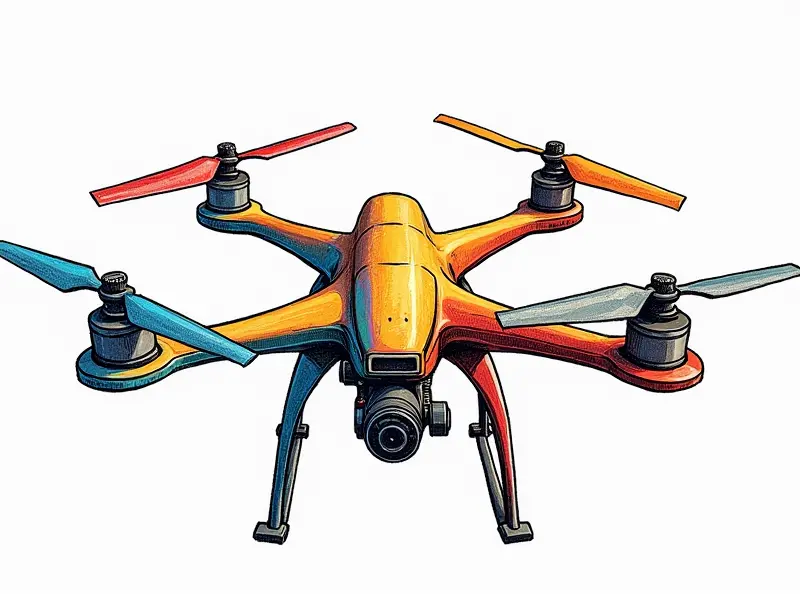Are drones legal for filming?

Are Drones Legal for Filming in Your Area?
Drones have revolutionized the way filmmakers capture aerial footage, offering unparalleled flexibility and creativity. However, with this new technology comes a complex web of regulations that vary significantly from one region to another. Before you take flight, it's crucial to understand the specific drone laws applicable in your area.
Understanding Drone Regulations for Video Production
The legality of using drones for video production is not uniform across different jurisdictions. In the United States, for example, the Federal Aviation Administration (FAA) sets national standards while local authorities may impose additional restrictions or requirements. Similarly, in Europe, each country has its own set of rules under the European Union Aviation Safety Agency (EASA).
Can You Use Drones Legally for Film Production?
The answer to whether you can use drones legally for film production depends on several factors:
- Airspace Authorization: In many countries, including the United States and Canada, you need a waiver or special permission from aviation authorities to fly commercially.
- No-Fly Zones: Drones are prohibited in certain areas such as military bases, airports, and national parks. Always check local no-fly zones before planning your shoot.
- Data Privacy Laws: Filming with drones may also involve compliance with data protection regulations to ensure you're not capturing private information without consent.
Drone Laws for Cinematic Filmmaking Explained
To navigate the legal landscape of drone filmmaking, it’s essential to familiarize yourself with key regulatory bodies:
- FAA (United States): The FAA requires commercial operators to obtain a Remote Pilot Certificate and register their drones.
- EASA (European Union): EASA mandates that drone pilots must hold an appropriate license, depending on the weight of the drone and its intended use.
- CASR (Civil Aviation Safety Regulations) in Australia: The Civil Aviation Safety Authority (CASA) requires operators to comply with specific rules, including obtaining a Remote Pilot Licence (RePL).
- CAA (United Kingdom): In the UK, the Civil Aviation Authority (CAA) mandates that commercial drone pilots must hold a Permission for Commercial Operations (PfCO).
Navigating Drone Laws for Professional Videography
Professional videographers face unique challenges when it comes to adhering to drone regulations. Here are some key considerations:
- Licensing and Certification: Ensure you have the necessary certifications and licenses required by your country or region.
- Insurance Coverage: Professional liability insurance is often mandatory for commercial drone operations, providing coverage in case of accidents or damages.
- Public Safety: Maintain a safe distance from people and property to avoid any potential harm during filming.
What Are the Legalities of Using Drones in Film?
The legalities surrounding drone use in film production are multifaceted, encompassing airspace regulations, privacy laws, and operational guidelines. Here’s a breakdown:
- Airspace Regulations: Always check local aviation rules before flying your drone.
- Data Protection: Be aware of data protection acts that might restrict the collection of personal information through aerial footage.
- Operational Guidelines: Follow best practices such as maintaining visual line-of-sight and avoiding restricted areas.
Drone Filming: Know Before You Fly Legally
To ensure compliance with drone laws for filmmaking, follow these steps:
- Research Local Regulations: Start by understanding the specific rules and requirements of your filming location.
- Obtain Necessary Permits: Apply for any required waivers or permissions from aviation authorities.
- Consult Legal Experts: Seek advice from legal professionals specializing in drone regulations to avoid potential violations.
Is It Legal to Use Drones for Filmmaking?
The legality of using drones for filmmaking hinges on adherence to local and national aviation laws, as well as privacy and data protection statutes. By staying informed about the latest regulations and obtaining proper certifications, you can legally incorporate drone footage into your projects.
Drone Regulations for Cinematography
Cinematographers must be vigilant in adhering to drone regulations to ensure their work is both innovative and compliant:
- Airspace Compliance: Ensure all flights comply with airspace restrictions and guidelines.
- Data Privacy: Respect privacy laws by avoiding unauthorized surveillance or data collection.
- Safety Protocols: Implement safety measures to prevent accidents during filming operations.
Can You Use Drones in Film?
The ability to use drones in film production is contingent upon meeting stringent regulatory requirements. By obtaining the necessary certifications, adhering to operational guidelines, and respecting privacy laws, filmmakers can legally leverage drone technology for their projects.
Legal Considerations for Drone Cinematography
When engaging in drone cinematography, several legal considerations must be addressed:
- Airspace Authorization: Obtain the required permissions from aviation authorities to fly commercially.
- No-Fly Zones: Avoid flying drones over restricted areas such as military installations or airports.
- Data Privacy: Ensure compliance with data protection laws when capturing aerial footage of individuals or private property.
Conclusion
The use of drones in film production offers unparalleled opportunities for creativity and innovation. However, it is imperative to navigate the complex legal landscape carefully to avoid potential violations. By staying informed about local regulations, obtaining necessary certifications, and adhering to operational guidelines, filmmakers can legally incorporate drone technology into their projects while maintaining public safety and privacy.

